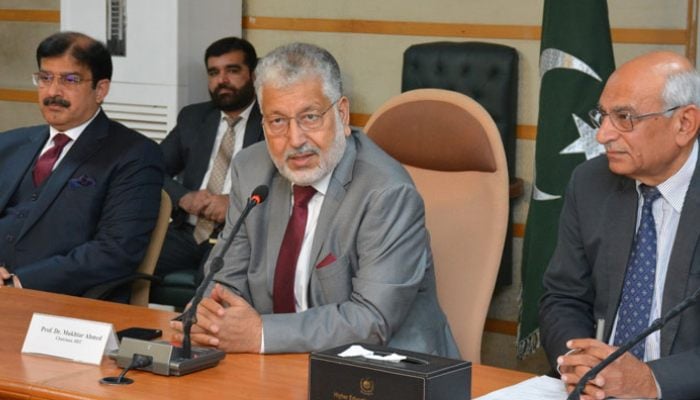While the system has the “ingredients” necessary for top-tier university rankings, poor governance remains a significant barrier to progress, Chairman of the Higher Education Commission (HEC) Dr Mukhtar Ahmed said, after a recent survey revealed that no Pakistani university ranked among the top 350 worldwide.
His remarks came while he spoke to Geo News’ programme “Geo Pakistan” earlier this week, highlighting the potential of Pakistan’s education system to compete globally.
The latest QS rankings placed Quaid-e-Azam University and the National University of Science and Technology (NUST) at 354th and 371st, respectively. Meanwhile, the University of Karachi, the largest institution in the country, only managed to enter the top 1,001, with no other Sindh universities making it to the top 1,500.
This situation has raised concerns regarding the effectiveness and role of private universities in the country’s higher education landscape.
While charging exorbitant fees, many private institutions are reportedly far from achieving global recognition. This raises concerns about the value of degrees obtained, particularly for students considering international opportunities after paying substantial tuition.
Despite the grim news, Ahmed highlighted a positive development, noting that 18 Pakistani universities have entered the top 1,000 globally, a significant improvement from just three universities in 2019.
He also noted that Pakistan possesses the “ingredients” for a stronger educational system.
“The nation has produced graduates who have excelled globally, even outperforming individuals from much larger countries,” he said. The key, however, lies in addressing three to four fundamental issues.”
He emphasised “governance” as the most critical.
“Improving governance within educational departments is a crucial step towards resolving many existing issues,” Ahmed asserted.
The second major problem he identified was “quality”.
“While universities now have autonomy and are under provincial administration, the HEC’s role is limited to providing a system and minimum standards.”
Furthermore, Ahmed highlighted that the perception that universities have become mere “employment exchanges” rather than centres of academic excellence is yet another challenge for the education industry to address.
Additionally, he said that investment in Pakistan’s education sector has been “inconsistent”, characterised by fluctuating budgets since 2002.
He pointed out that the development budget for education has been reduced, further widening the gap between Pakistani universities and their global counterparts.
“The budget of even a single top 500 university in the West often surpasses the entire higher education budget for one university in Pakistan.”
He called for “ownership and investment” in the youth to enable Pakistani universities to compete with the world’s best.

